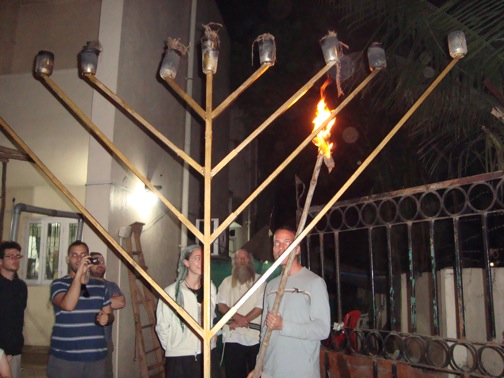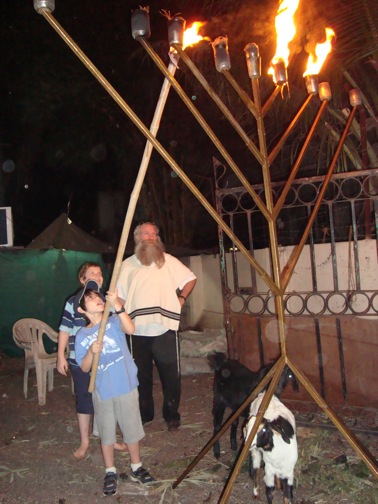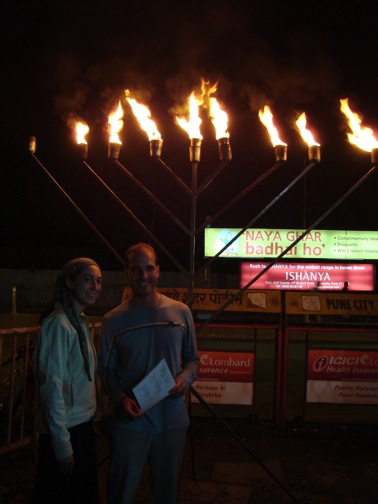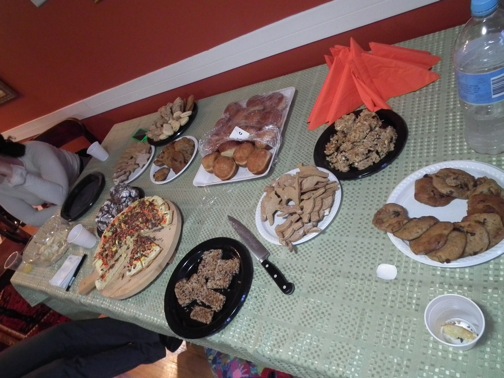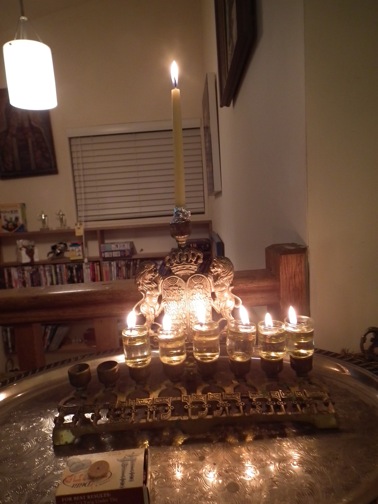Celebrating the Eighth Night and Day of Chanukah in Sydney, Australia!
 Tonight/Today is the eighth and last day of Chanukah for this year. It’s my favorite because I love seeing the menorah all lit at full splendor, but it’s my least favorite because it signals the end of one of my favorite holidays. Good thing I believe in eating donuts all year round… and I believe that potato kugel should just be one really giant latke.
Tonight/Today is the eighth and last day of Chanukah for this year. It’s my favorite because I love seeing the menorah all lit at full splendor, but it’s my least favorite because it signals the end of one of my favorite holidays. Good thing I believe in eating donuts all year round… and I believe that potato kugel should just be one really giant latke. ![]()
Last night, I celebrated the end of Chanukah by going to a really big Chanukah party that was held in Double Bay, a neighborhood of Sydney. I went with a friend of mine and her daughter. The party was mostly geared toward children and offered lots of diversions for them, including a petting zoo, games, rides, a magician, and even pony rides. Still, it was fun to walk around, say hi to everyone, and celebrate Chanukah!
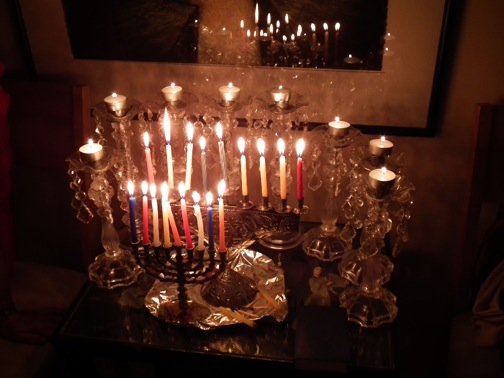 After that party, I went to a party at a friend’s house. She had over many guests and (of course) fed them lots of latkes! I had a nice time meeting people, some of whom were not Jewish or did not know much about the holiday. It was fun getting to explain to them the history of Chanukah traditions, such as giving gelt and playing dreidel. I also got to explain about the different laws and traditions surrounding menorahs. There are some laws that apply to all menorahs (such as that the candles should be all at the same height and in a straight line, except for the shamash), but other differences (such as whether to light with oil, candles, or a combination) are only traditions. After lighting the menorah, everyone sat around and sang songs. One man played a guitar while another played a drum. It was really fun! This is the kind of celebration with family and friends that Chanukah is really about.
After that party, I went to a party at a friend’s house. She had over many guests and (of course) fed them lots of latkes! I had a nice time meeting people, some of whom were not Jewish or did not know much about the holiday. It was fun getting to explain to them the history of Chanukah traditions, such as giving gelt and playing dreidel. I also got to explain about the different laws and traditions surrounding menorahs. There are some laws that apply to all menorahs (such as that the candles should be all at the same height and in a straight line, except for the shamash), but other differences (such as whether to light with oil, candles, or a combination) are only traditions. After lighting the menorah, everyone sat around and sang songs. One man played a guitar while another played a drum. It was really fun! This is the kind of celebration with family and friends that Chanukah is really about.
In honor of the eight day of Chanukah, I have composed a parody song that I hope you will all enjoy. I will spare you having to listen to me sing it ![]()
On the eighth day of Chanukah,
my true love gave to me
Eight dreidels spinning,
Seven children laughing,
Six chocolate gelt,
Five golden latkes,
Four sufganiyot,
Three magen davids,
Two Jewish mothers,
And a menorah with some candles.
You may also enjoy this YouTube video of some of last night’s festive singing. Please be aware that you may hear some female voices singing in the background:
Read More


